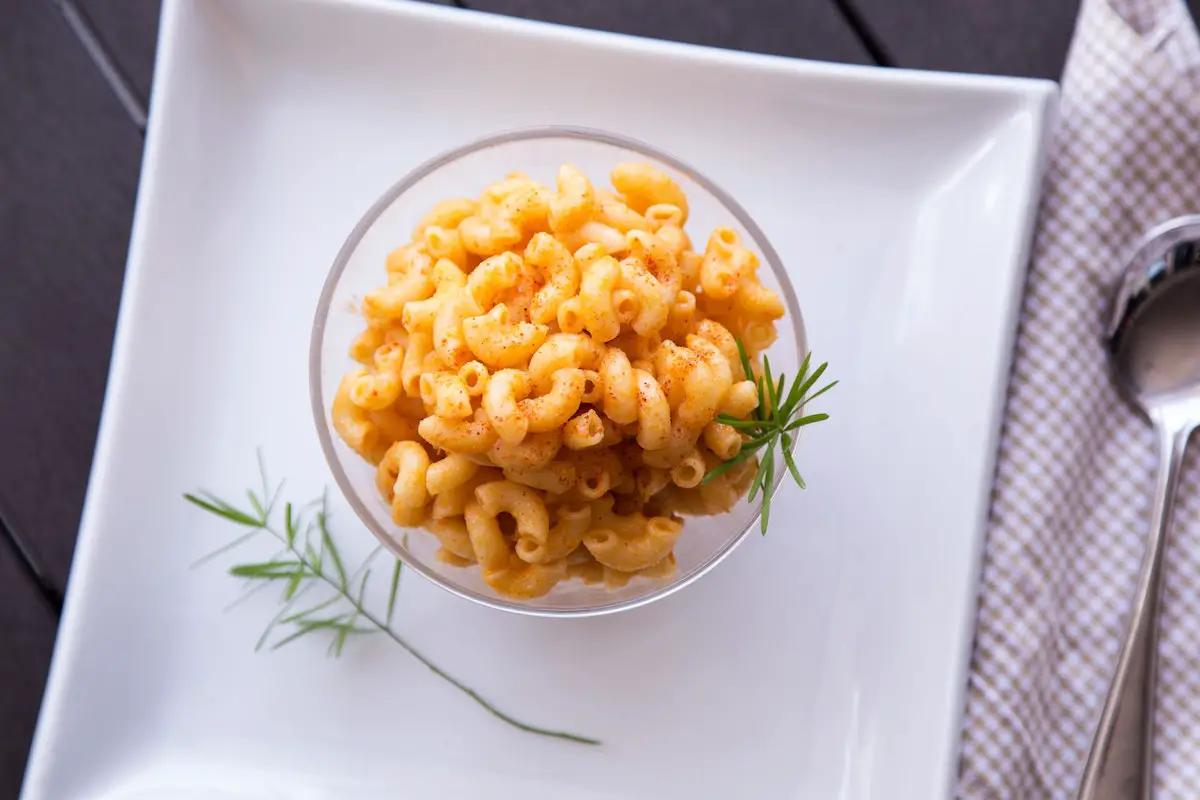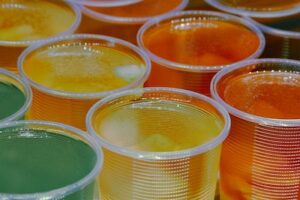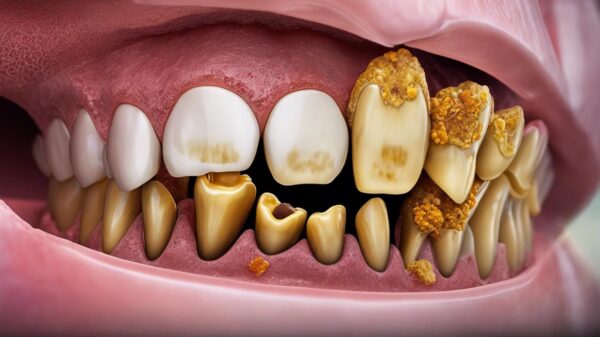What to Eat During Recovery from Wisdom Tooth Removal
If you’re one of the many people who are scheduled to have a wisdom tooth removal shortly, you’re probably wondering what you should eat afterward. Don’t worry – we’ve got you covered!
So, what are 9 soft foods you should eat after a wisdom tooth removal? Nine soft foods to eat during the recovery process from your wisdom tooth removal include ice cream, soup, mashed potatoes, scrambled eggs, macaroni and cheese, oatmeal, pudding, cottage cheese, and gelatin.
In this blog post, we will list nine soft foods that you can enjoy after your surgery. We’ll also tell you about some things that you should avoid eating and give you some tips on how to prepare for your recovery.
Keep reading for all the information you need on wisdom tooth removal!
Top 9 Foods to Eat After Wisdom Tooth Removal
Although you may not feel like eating immediately after your wisdom tooth removal, it’s important to eat soft foods to help your recovery process.
Some of the best 9 soft foods you should eat after a wisdom tooth removal include:
1. Ice Cream
Be sure to choose a flavor that is not too hard or crunchy. Opt for soft serve or add some crushed ice chips if your ice cream is too hard.
2. Soup
A warm bowl of soup can be soothing and easy on the stomach. Just be sure to avoid any chunks or bites that are too big.
3. Mashed Potatoes
Mashed potatoes are another great comfort food option. They should be smooth and fluffy, without any lumps.
4. Scrambled Eggs
Scrambled eggs are a light but satisfying option for those who are looking for something more than soup.
5. Macaroni and Cheese
This classic comfort food is perfect for after wisdom tooth removal. Be sure to choose a softer cheese like mozzarella or American.
6. Oatmeal
Oatmeal is a great source of fiber and can help you feel fuller longer. It’s also easy on the stomach.
7. Pudding
Pudding is a sweet but soft option that can be enjoyed after surgery. Just be sure to avoid any flavors with chunks or crunchy toppings.
8. Cottage Cheese
Cottage cheese is light but packed with protein, making it a great post-surgery snack.
9. Gelatin
Gelatin is another sweet but soft food that can be enjoyed after wisdom tooth removal. Just be sure to avoid any flavors with chunks or crunchy toppings.
What NOT to Eat After Wisdom Tooth Removal
Now that we’ve gone over some of the best foods to eat after wisdom tooth removal, let’s talk about what you should avoid.
Some of the foods that you should avoid after wisdom tooth removal include:
- Chips
- Pretzels
- Nuts
- Popcorn
- Hard candy
- Sticky candy
- Chewing gum
- Raw fruits and vegetables
These foods can irritate your surgical site and slow down the healing process. It’s important to stick to soft foods to ensure a speedy recovery.
When Can You Eat Normal Foods During Wisdom Tooth Recovery?
You may be wondering when you can go back to eating your normal diet. The answer depends on how your surgery went and how well you’re healing.
Most people can eat their normal diet within a week after surgery. However, it’s important to listen to your body and eat only soft foods if you’re still experiencing pain or discomfort.
If you have any questions about what you should or shouldn’t be eating, be sure to ask your dentist or oral surgeon.
Understanding the Wisdom Tooth Removal Procedure
Wisdom teeth are the third and final set of molars that most people get in their late teens or early twenties.
For some people, wisdom teeth come in without any problems. But for others, wisdom teeth can become impacted, meaning they get stuck under the gum line or grow at an angle. Impacted wisdom teeth can cause pain, swelling, and infection. They can also damage surrounding teeth.
For these reasons, it is often recommended that wisdom teeth be removed even if they are not causing any problems at the time.
Preparing for Wisdom Tooth Removal Recovery
Now that you know what to eat (and what not to eat) after your wisdom tooth removal, let’s talk about some other things you can do to prepare for your recovery.
Prioritize Rest
First, it’s important to get plenty of rest. You may be feeling tired after your surgery, and that’s normal.
Avoid Strenuous Activity
Second, you should take it easy for the first few days following your surgery. Avoid strenuous activity and exercise.
Elevate Your Head
Third, you should keep your head elevated. This will help reduce swelling and pain.
Apply Ice Regularly
Fourth, you should apply ice to your face in 20-minute intervals. This will also help with swelling and pain.
Follow Dentist’s Recommendations
Finally, be sure to follow all of your dentist’s or oral surgeon’s instructions for a successful recovery!
How to Manage Pain Following Wisdom Tooth Removal
You may be wondering how to manage pain following wisdom tooth removal.
There are a few things you can do to help ease the pain, including:
- Take pain medication as prescribed by your dentist or oral surgeon
- Apply ice to your face in 20-minute intervals
- Elevate your head while you sleep
- Avoid strenuous activity and exercise
If you’re still experiencing pain after following these tips, be sure to contact your dentist or oral surgeon.
Other Things to Know About Wisdom Tooth Removal Recovery
In addition to the tips we’ve already discussed, there are a few other things you should know about wisdom tooth removal recovery.
Bleeding and Swelling
First, you may experience some bleeding and swelling for the first few days after your surgery. This is normal and will subside with time.
Bruising
Second, you may also experience some bruising. This is also normal and should go away within a week or two.
Numbness
Third, you may have some numbness in your lips, tongue, and chin following your surgery. This is due to the anesthesia and should wear off within a few hours.
Finally, be sure to take it easy for the first few days after your surgery. Avoid hot drinks, alcohol, smoking, straws, and anything else that could irritate your surgical site.
By following these tips, you can ensure a successful wisdom tooth removal recovery! If you have any questions, be sure to ask your dentist or oral surgeon. They will be happy to help you through the recovery process.
Signs You May Need Your Wisdom Teeth Removed
While most people will eventually need their wisdom teeth removed, some people may need them removed sooner.
If you experience any of the following signs, you should see your dentist or oral surgeon for an evaluation:
- Swelling in your gums
- Pain in your gums
- Crowding in your mouth
- Cysts or tumors around your wisdom teeth
- Infection around your wisdom teeth
Don’t wait until you’re experiencing pain to see a dentist or oral surgeon. If you think you may need your wisdom teeth removed, schedule an appointment today!
Alternatives to Wisdom Tooth Removal
In some cases, wisdom tooth removal may not be necessary.
If your wisdom teeth are coming in without any problems, your dentist or oral surgeon may recommend one of the following alternatives:
- Regular dental check-ups: to monitor the progress of your wisdom teeth
- X-rays: to track the growth of your wisdom teeth
- Partial removal: to remove only a portion of your wisdom tooth
If you have any questions about whether or not you need your wisdom teeth removed, be sure to ask your dentist or oral surgeon. They will be happy to answer any questions you may have!
Final Thoughts
Wisdom tooth removal is a common procedure that is often recommended to prevent future problems. When recovering from your wisdom tooth removal, it is important to be careful about what foods you are eating. You must stick to soft foods for at least the first week after your surgery. So, with all of these great options from our 9 soft foods that you should eat after a wisdom tooth removal, there are bound to be some foods to carry you through this time.
In addition to being careful about your diet, there are a few other things you can do to prepare for your recovery. Be sure to get plenty of rest and take it easy for the first few days following your surgery. You should also keep your head elevated and apply ice to your face in 20-minute intervals.
If you are considering wisdom tooth removal, be sure to ask your dentist or oral surgeon about what to expect.
Related Questions
When is the best time to get my wisdom teeth removed?
The best time to get your wisdom teeth removed is typically in your late teens or early twenties.
Can I drive myself home after wisdom tooth removal?
No, you should not drive yourself home after wisdom tooth removal. You will be given medication during your surgery that can make it unsafe for you to drive. Be sure to arrange for a friend or family member to drive you home after your surgery.
What are the risks of not getting my wisdom teeth removed?
There are several risks associated with leaving your wisdom teeth in. These risks include tooth decay, gum disease, and infection.
If you have any other questions about wisdom tooth removal, be sure to ask your dentist or oral surgeon. They will be happy to answer any questions you may have!


















